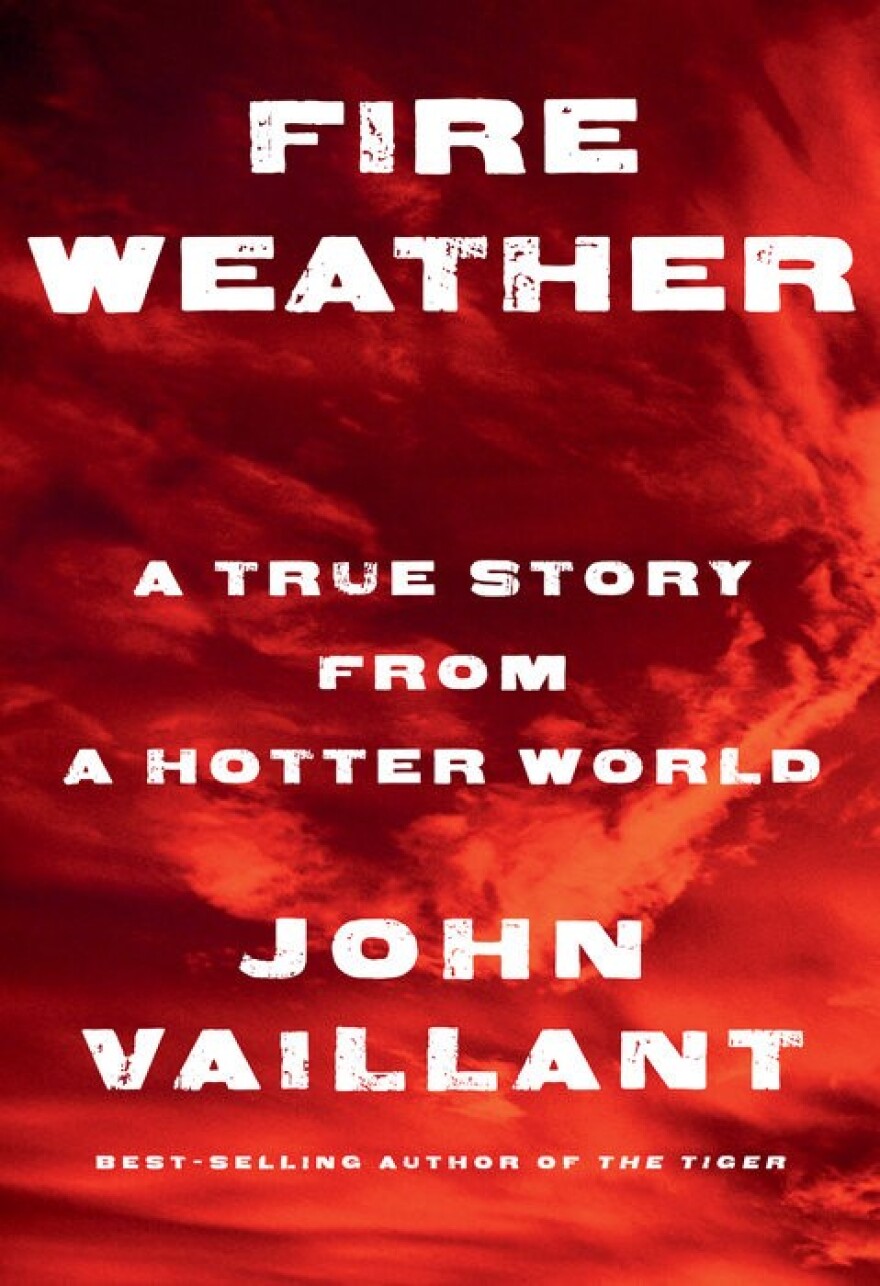Though Maine was spared the worst of it, many areas in the Northeast U.S. have been blanketed by smoke from Canadian wildfires in recent weeks. A new book suggests this may become more common phenomenon. In "Fire Weather," author John Vaillant chronicles a major wildfire in Fort McMurray, Alberta, that forced a major evacuation, and shut the petroleum-producing city down for a month in 2016.
In an interview with Maine Public's Murray Carpenter, Vaillant said he believes that climate conditions will generate more of these fires in the decades to come.
This interview has been lightly edited for clarity.

Vaillant: One of the concepts I leaned on in the book is this concept of 21st-century fire. And I think we're going to be seeing a lot more of it, and across a much larger stretch of the landscape. And Canada has always been fire country, especially in the west. Alberta, British Columbia, Saskatchewan. So we have big fires and we generate a lot of smoke even at the best of times.
Nova Scotia, on the other hand, when I think of Nova Scotia, I think of the land of fog, I do not think of the land of orange fire smoke. So that is something relatively new. They've had big fires historically, but they're really rare. And on this scale... you know unprecedented is probably not a good word to be using in the times of climate change that we're living in now, because we're gong to be seeing a lot of new behavior. But this was really big, it really blindsided people in Nova Scotia and the implications for the Northeast are serious.
Carpenter: And what are those implications? Obviously there are implications for health, but you're saying there's more than that.
It creates a real existential disturbance: Is this the world that I used to know, and what's it going to be like in the future?
In the book you mention that boreal forests and fire need each other, it's a sort of symbiotic relationship. But what's changed here?
What's changed is the heat and the dryness. What we've got right now in Alberta, and really across Canada, are temperatures that are significantly above normal and very little rainfall. So you have hot, dry and often windy. And those are the magic ingredients of runaway wildfire.
One of the patterns you mentioned in the book was that it wasn't just the warmer daytime temperatures but the warmer nighttime temperatures that Fort McMurray was experiencing. We're certainly seeing that in Maine. Is this one of the patterns that really struck you in reporting this book?
Yes, it's really concerning, because we don't notice it, we're asleep at night. And so we're not really noticing. In Portland, Maine, you're probably having some nights above 70 degrees now, which would have been unheard of when we were kids.
In Maine, we're really banking on our forests to sequester as much carbon as possible. And that's the mitigation strategy that's going to get us to net zero emissions. When you see forests burning like this, it's hard to imagine how much carbon they're generating. So there's some tension there, right?
There's absolutely some tension. These large fires like the ones currently burning in Quebec and Alberta, they produce entire countries worth of annual emissions. It's like a volcano, it's really, really disruptive. We can count on the forests, and I think that's a reasonable thing to do, but Mother Nature is not going to get us out of this. We created this situation, through burning fossil fuels in massive quantities, and also deforestation which is happening all over the world on a scale that is not sustainable. We really have to manage our own appetites, manage our own emissions, and kind of clean up our room.



